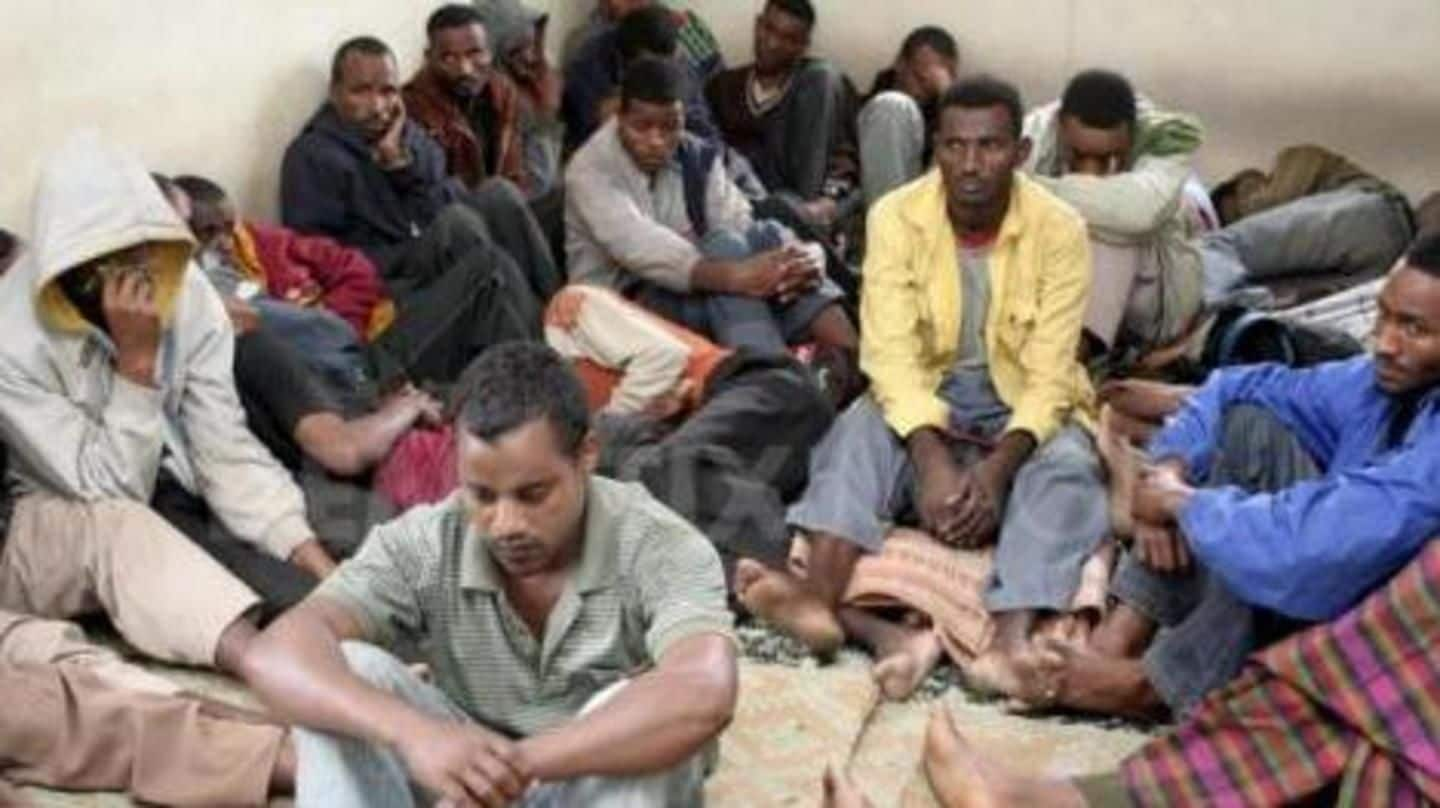
Illegal Indian-immigrants being treated like criminals in US-jail: Advocacy groups
What's the story
Fifty-two illegal Indian immigrants, mostly Sikhs, seeking asylum in the US are being treated like criminals with their turbans taken away in a federal prison in Oregon after getting caught up in Trump administration's controversial "zero-tolerance" policy, said legal advocacy groups.
Trump's tough immigration policy has separated nearly 2,000 children from their parents and placed into holding facilities between 19 Apr-31 May'18.
Here's more.
Illegal immigrants
Illegal-immigrants haven't committed crime; have asked only for asylum: Professor
"The young kids in their 20-30s, haven't committed a crime, they've crossed the border and they have asked for a refugee and that is a law of this land," Navneet Kaur, a community college professor, said.
Navneet, who volunteered to work as Punjabi translator for Innovation Law Lab (the firm providing legal assistance to illegal immigrants), has interacted with most of the Indian inmates.
Sikhs
Turbans of Sikhs taken away in US jails: Advocacy groups
Navneet said the Indian asylum seekers were chained when arrested.
"The situation is worse for the Sikh inmates as their turbans have been taken away. They're in a state of shock," she said, adding that none of these asylum seekers want to go back home.
They fear for their lives in India and are subject to political and religious persecution, she added.
Details
About Innovation Law Lab
The Innovation Law Lab has filed a lawsuit to seek access to these inmates and has been providing legal assistance to all the Indian asylum seekers who want one.
As a result of the intervention of the Innovation Law Lab, the condition of these inmates has improved and they are being allowed to make calls both domestic and internationally.
Asylum
Process of seeking asylum in the US
Those who wish to seek asylum in the US have to appear for a credible fear interview, which takes place with an asylum officer, who will assess whether they have been actually persecuted or have a reasonable fear of persecution.
Secondly, they will try to assess whether or not that persecution is related to a reason for having asylum, Kaur added.